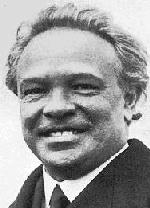

OTTORINO RESPIGHI
9th July 1879 --- 18th April 1936
Copyright 1994-1998 Encyclopaedia Britannica
Last Updated on 2023
By Steven Ritchie
And now for the Music

Thanks to Satoshi Orisaka for the music below.
New (4139)"Siciliana". Sequenced by Satoshi Orisaka. New (4137)"Pines of Rome, Mov.1". Sequencer Unknown. New (4138)"Pines of Rome, Mov.2". Sequencer Unknown. Thanks to Philip Decloux for the music below, Email (declouxp @ hotmail.com)
"Fontane di Roma, All four movements in the same file". Sequenced by Philip Decloux. Thanks to Ramon Pajares Box for music below.
(255)"Antiche Danze Arie Suite No.1,(Info by Ramon Pajares Box)". Sequenced by M. Lundgren
Thanks to Gary Goldberg for the music below. Email (garyg@ix.netcom.com)
(840)"Antiche Danze Arie, Suite No.2,(Info by Demian Battaglia)". Sequencer unknown
(839)"Antiche Danze Arie, No.3". Sequencer unknown
(838)"First movement (Circuses) from Feste Romane,(Info by Edward Gold)". Sequencer unknown

If you done any Classical pieces of say for example, Delius, mozart, and so on etc,
please email them to the classical music site with details to
"classical (@) ntlworld.com" written this way to stop spammers
just remove spaces and brackets for email address, thank you.

Visitors to this page --

Back to Classical Midi Main Menu click "HERE"